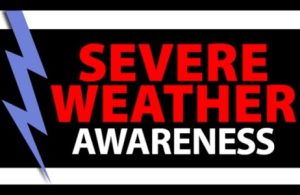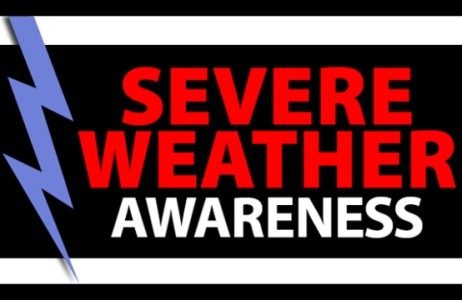The Severe Weather Awareness Week Topic for Monday is Weather Alerts and Warnings with Crookston Firefighter Brian Hanson. Hanson began Monday’s theme by explaining how important it is to stay in tune with updates regarding severe weather.
“We are fortunate to live in an age and country where our technology can communicate with us almost from anywhere and give us advanced warnings of impending hazards,” said Hanson, “Knowing where and how you can receive the warnings and what to do when you get them can mean the difference between life and death.”
In weather emergencies, warnings can save lives. Traditional warning methods such as television, radio, and outdoor sirens don’t always reach everybody. Emergency officials now have a new way to send warnings directly to cell phones in affected areas. “Wireless Emergency Alerts or WEAs,” said Hanson, “These short messages may look like a text message, but unlike texts, which are sent directly to your phone number, these warnings will be broadcast to all phones within the range of designated cell towers.” These new alerts will tell you the type of warning, affected area, and the duration.
You may need to turn to other sources, such as your television or radio, to receive more detailed information about what is happening and what actions you should take.
Tags:




